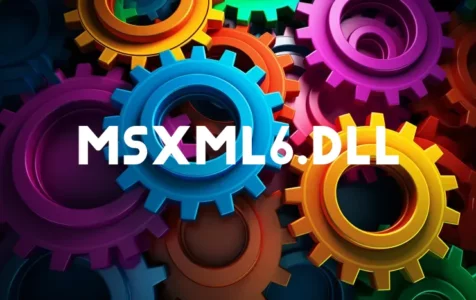MSXML6.DLL is a Dynamic Link Library (DLL) file associated with MSXML (Microsoft XML Core Services) 6.0. MSXML provides a set of services that allow applications written in JScript, VBScript, and Microsoft development tools to build Windows-native XML-based applications. It aids in validating, parsing, and manipulating XML documents.
Is MSXML6.DLL Safe to Run?
Yes, MSXML6.DLL is a legitimate file provided by Microsoft and is safe to run. It is used by various applications to properly handle XML documents. When sourced from official Microsoft updates or trustworthy systems, there are no inherent risks involved in using MSXML6.DLL.
Could MSXML6.DLL be a Virus or Malware?
While the authentic MSXML6.DLL file is not a virus or malware, it is possible for any file on your computer to be replaced or disguised by malicious software. A virus or malware could be named “MSXML6.DLL” to conceal its true nature. Using antivirus software to scan your system can help you ascertain whether there is any risk.
Common Issues Associated with MSXML6.DLL
Errors Related to MSXML6.DLL: You may encounter errors related to this file for several reasons, such as a faulty application, accidental deletion of the file, or corruption by malicious software. These issues might manifest with error messages indicating that MSXML6.DLL is missing, not found, or has encountered a problem.
Expert Tip: For smoother PC performance, consider using a PC optimization tool. It handles junk files, incorrect settings, and harmful apps. Make sure it's right for your system, and always check the EULA and Privacy Policy.
Special offer. About Outbyte, uninstall instructions, EULA, Privacy Policy.
Installation and Reference Issues: When using legacy software like Visual Basic 6 on modern systems such as Windows 10, there may be difficulties in properly referencing MSXML6.DLL due to compatibility issues or administrative restrictions.
Access Denied Errors: Programs may also face ‘Access Denied’ errors when MSXML6.DLL tries to process HTTP-to-HTTPS redirections, which might signify a requirement for move suitable XML services for server-side usage.
Fixing Issues with MSXML6.DLL
Automatic Updates: Windows Update often delivers patches and service packs that fix issues related to MSXML6.DLL. Ensuring that your system is up to date can help prevent or resolve issues.
Manual Update: If a specific update or service pack is necessary — for instance, MSXML Core Services 6.0 Service Pack 2 — it can be downloaded and installed manually from Microsoft’s official website.
Running Setup as Administrator: Installing MSXML updates in newer versions of Windows may require administrative privileges. Run the setup file with elevated permissions by right-clicking and selecting ‘Run as Administrator’.
Downloading MSXML6.DLL: If you need to download MSXML6.DLL or replace a missing or corrupt file, ensure you obtain it from trusted Microsoft archives or other official sources.
Replacing MSXML3.DLL with MSXML6.DLL: When upgrading from MSXML version 3 to 6, it is advisable to download the latest MSXML6 version, as it offers improved security and functionality. It is important to update applications to reference the newer DLL.
Investigating HTTP/HTTPS Redirection Issues: If there are problems with HTTP-to-HTTPS redirection, consider checking the code and settings involved in the XMLHttpRequest. Switching from XMLHTTP to ServerXMLHTTP may be required for server-side applications.
Checking MSXML Version: To verify the MSXML version installed on your system, locate the Msxml6.dll file in the System32 directory, right-click on it, choose ‘Properties’, and then the ‘Version’ or ‘Details’ tab.
If you need further assistance with MSXML6.DLL issues, visiting community forums can be beneficial. They offer a platform to get help from tech specialists and other users who may have faced similar issues. You may find relevant discussions on websites such as CodeProject or VBForums, where users share their experiences and solutions related to MSXML6.DLL problems.
Remember to tread cautiously when downloading DLL files and to utilize reliable sources to protect your system from potential harm. Use antivirus software to scan files downloaded from the internet and double-check that you are using the latest and compatible version of MSXML for your applications.
